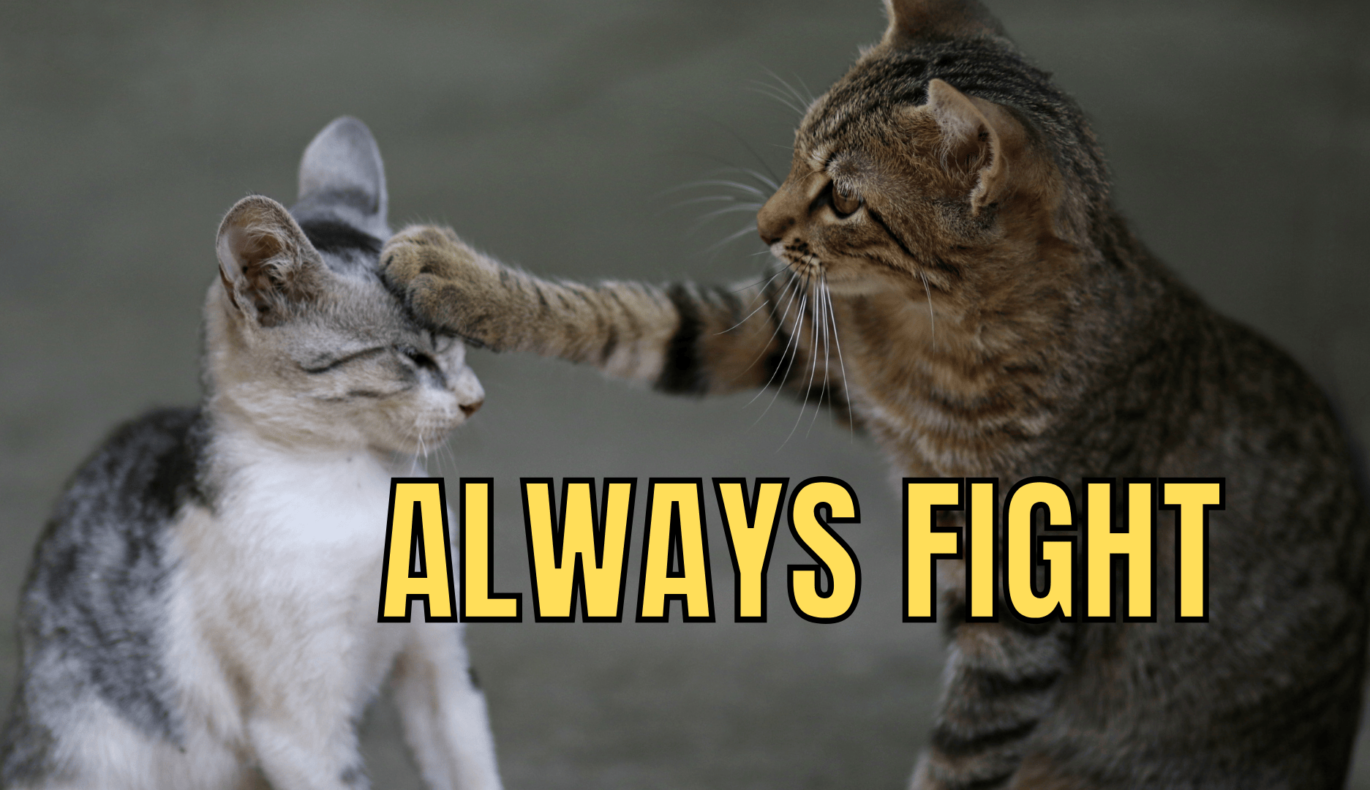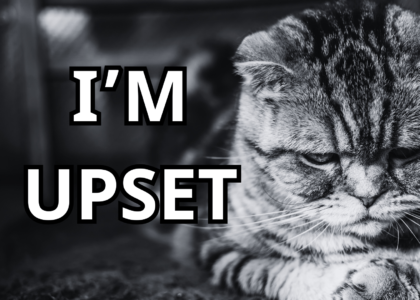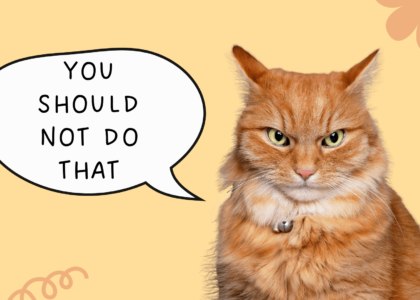Some choices in life are easy. Coffee or tea? You probably already know your answer. Dogs or cats? Well, if you’re here, I think we both know where you stand. But then there’s a question that sneaks up on every cat lover at some point: Should you stop at one… or is two the magic number?
At first, it sounds like a simple decision. Twice the paws, twice the love, twice the adorable little toe beans. But then the reality kicks in. Twice the food, twice the litter scooping, twice the judgmental stares when you walk past without giving them treats.
So, which is it? Is a second cat the best thing you could do for your furry overlord, or is it a fast track to household chaos? Some people swear by the buddy system, saying cats are happier when they have a friend. Others will tell you that adding another cat is like throwing a second dictator into an already unstable government.
By the end of this video, you’ll have your answer. No vague, wishy-washy conclusions, no wasted time—just real, solid insight on whether your cat truly needs a partner in crime or if they’d rather rule their kingdom alone. Let’s get into it.
Cats are complicated creatures. One minute, they’re rubbing against your leg, purring like you’re their one true love. The next, they’re sitting across the room, staring at you like you just insulted their ancestors. So, do they actually want company, or are they just tolerating us because we have opposable thumbs and access to food?
Let’s clear something up—cats are not like dogs. A dog will follow you to the ends of the earth. A cat will follow you to the kitchen. Maybe. If they’re in the mood. But that doesn’t mean they’re solitary creatures. In the wild, big cats like lions live in prides, while others, like tigers, prefer a solo existence. House cats? They land somewhere in between. They can be independent, but when given the choice, many actually prefer a little company—on their own terms, of course.
Ever seen two cats who are best friends? They groom each other, nap in a tangled pile of fur, and play like kittens, no matter their age. But then, there’s the other side—the cats who lock eyes across the room and immediately decide to reenact an action movie fight scene.
So, what does this mean for your home? It means that whether a cat thrives alone or with a friend isn’t just about species instincts. It’s about personality, territory, and, let’s be honest, how much patience you have. Because while some cats find comfort in a built-in buddy, others will spend their days plotting a one-cat coup.
Having two cats sounds like double the trouble, but for the right pair, it’s actually double the joy. Think of it like a perfectly matched sitcom duo—one’s the troublemaker, the other’s the voice of reason, and together, they create pure entertainment. But beyond the endless amusement, there are real benefits to having a feline tag team.
First, let’s talk companionship. No matter how much you love your cat, you will never be able to wrestle like another cat, chase imaginary prey at two in the morning, or curl up in a warm pile of fur for an afternoon nap. Well, maybe that last one, but you get the idea. A bonded pair of cats keeps each other entertained, especially when you’re not around. They invent games, they share warmth, and they do this adorable thing where they groom each other, which is basically the feline version of a spa day.
Then there’s exercise. A single cat can get lazy, lounging in a sunbeam all day like royalty. But with two? The zoomies become a competitive sport. They chase each other, wrestle, and burn off all that energy that would otherwise be directed at your furniture. A tired cat is a happy cat. And a happy cat is one that’s less likely to redecorate your couch with their claws.
And let’s not forget emotional support. Cats that bond deeply become each other’s security blankets. They comfort each other during stressful situations—like vet visits, thunderstorms, or that terrifying moment when the vacuum comes out. Some cats even develop separation anxiety if left alone too much, but with a buddy, they always have someone familiar nearby.
So yes, two cats means more food, more litter, and more fur floating around your home like tiny tumbleweeds. But it also means more play, more comfort, and more of those little moments that make being a cat owner so rewarding. And if you’ve ever witnessed two cats snuggled up together in perfect harmony, you already know—some things in life really are better in pairs.
Having two cats can be like having a dynamic duo—playful, entertaining, and full of heartwarming moments. But sometimes, it’s less like a buddy comedy and more like an ongoing territorial dispute between two tiny, furry emperors who both think they own the kingdom.
Let’s start with the obvious: not all cats get along. Just because one cat enjoys your company doesn’t mean they automatically want a roommate. Imagine waking up one morning to find a stranger has moved into your house, is eating your food, and is now sleeping in your favorite chair. That’s how some cats feel about a new arrival. Some become best friends, while others spend their days plotting each other’s downfall, one slow-motion tail flick at a time.
Then, there’s the cost. One cat is manageable. Two? Double the food, double the litter, double the vet bills. And if one of them has expensive taste in toys or a particular brand of gourmet tuna they refuse to eat unless it’s served in a ceramic dish—well, you’re in for a fun financial surprise.
Space is another big factor. If you live in a tiny apartment, two cats might feel like too much. Cats are territorial by nature, and while some are fine with sharing, others want their own personal kingdom with plenty of escape routes. Without enough space, you might find your once-peaceful home turning into a feline version of a Cold War standoff, complete with stare-downs from across the room and the occasional strategic couch ambush.
And then, of course, there’s the litter box situation. If you think scooping one box is a chore, imagine managing two or three. Because in cat world, the general rule is: one litter box per cat, plus an extra. It’s a rule created by experts, but mostly enforced by the cats themselves, who will find the one tiny reason why they suddenly refuse to share.
But perhaps the biggest challenge is the introduction process. You can’t just plop a new cat into your home and expect an instant friendship. It takes time, patience, and sometimes a little bribery in the form of treats. Some introductions go smoothly. Others involve hissing, hiding, and a negotiation process so delicate it feels like you’re brokering world peace.
So, is two better than one? It depends. Some cats thrive with a companion, while others will spend their days side-eyeing their new sibling like they’re plotting an elaborate escape plan. If you’re prepared for the extra work, extra cost, and potential feline drama, two cats can be an incredible duo. But if your cat is happier as the one and only ruler of their domain, forcing a roommate on them might not go over so well.
Some cats live for the solo life. They lounge in the sun, rule their territory, and stare at you with the quiet confidence of a creature that knows they’re the true owner of your home. Others, though? They seem… lonely. And that’s where the big question comes in: does your cat need a friend, or are they perfectly content being your one and only?
The first sign that your cat might want a buddy is clinginess. If your cat follows you around like a shadow, meows constantly when you’re out of sight, or insists on sitting on your laptop specifically when you’re working, they might be craving more interaction. You are their entire world, and while that’s cute, it also means they might be happier with a feline friend to share the attention.
Then, there’s boredom. If your cat’s daily routine consists of sleeping, staring at the wall, and occasionally launching themselves across the room at imaginary prey, they might be looking for more stimulation. This is especially true if they get the zoomies at night or have started turning household objects—your socks, your earbuds, your dignity—into playthings. A second cat can provide the kind of entertainment that no fancy toy can replicate.
Some cats even show interest in other cats. If your cat watches neighborhood cats through the window with fascination instead of fury, or if they’ve ever had friendly encounters with another cat, that’s a strong clue. On the flip side, if your cat reacts to the mere scent of another cat with wide-eyed panic and a low growl, they’re probably not looking for a roommate.
But before you start searching for a second cat, look for signs that your cat prefers the solo life. If they’re easily stressed by change, act territorial, or have no patience for sharing, a new cat might feel like an invasion instead of a gift. Some cats just like being the only child, and that’s okay.
At the end of the day, your cat’s happiness is what matters most. A second cat can be a lifelong companion—or a lifelong rival. Knowing the difference before making the leap can save everyone, including your furniture, a whole lot of stress.
So, is two better than one? The answer isn’t as simple as a yes or no. Some cats thrive with a companion, creating a bond that’s equal parts heartwarming and hilarious. Others? They prefer to be the one and only ruler of their kingdom, and any attempt to introduce a co-ruler will be met with a slow blink of disapproval.
If your cat is lonely, full of energy, or shows interest in other cats, bringing home a feline friend could be the best decision you ever make. But if they’re territorial, easily stressed, or already living their best life, a new cat might feel less like a gift and more like an intruder.
If you do decide to get a second cat, go slow. Introductions take time, patience, and the occasional strategic use of treats. Kittens tend to bond more easily, but adult cats can become best friends, too—with the right approach.At the end of the day, it’s not about what sounds like a good idea—it’s about what’s best for your cat. Two cats can mean double the love, double the fun, and yes, double the mischief. But for the right pair, that mischief is just part of the magic.






